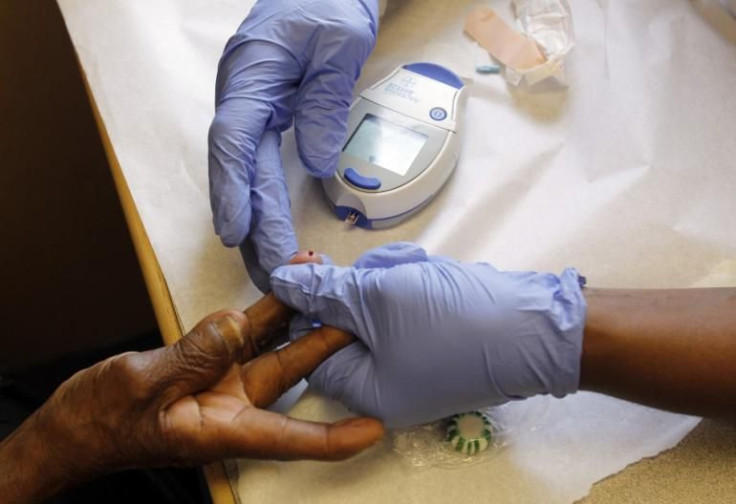'Breathalyzer' For Diabetes? New Needle-Free Test Measures Your Blood Glucose Levels

For people diagnosed with type 2 diabetes, finger pricking is a painful, but necessary part of their day. But now, researchers from Western New England University have developed a breathalyzer for diabetics that accurately measures blood-glucose levels without the needle, HealthDay reported.
Lead researcher Ronny Priefer, Ph.D, and his colleagues from the university presented their data at the 2013 American Association of Pharmaceutical Scientists (AAPS) Annual Meeting and Exposition. The research team expects to start clinical trials on patients between late 2014 and early 2015. Participants in the trials would have their blood tested by the breathalyzer, through finger pricking, and from blood testing for glucose. They would then be asked to describe each method.
“Breathalyzers are a growing field of study because of their potential to have a significant positive impact on patients’ quality of life and compliance with diabetes monitoring,” Dr. Priefer said in a press release. “What makes our technology different is that it only accounts for acetone and doesn’t react with other components in the breath.”
The hand-held device is made up of “multilayer technology using nanometer-thick films consisting of two polymers that react with acetone.” Acetone, the acid that remains when body fat is spent, combines with the polymers, which in turn, changes the physical chemistry of the film. Blood glucose levels are determined by the amout of acetone that interacts with the polymers.
“The breathalyzer we currently have is about the size of a book, but we’re working with an engineer, Dr. Michael Rust at Western New England University, to make it smaller, more similar to the size of a breathalyzer typically used to detect blood alcohol content levels,” Dr. Priefer added.
According to the World Health Organization's data, 347 million people around the world have been diagnosed with diabetes. The chronic disease is the result of the body not being able to produce a sufficient amount of insulin. In 2004 alone, 3.4 million people died as a result of high blood sugar. People who develop diabetes are also at risk of other health concerns including heart disease, stroke, kidney failure, and blindness.



























